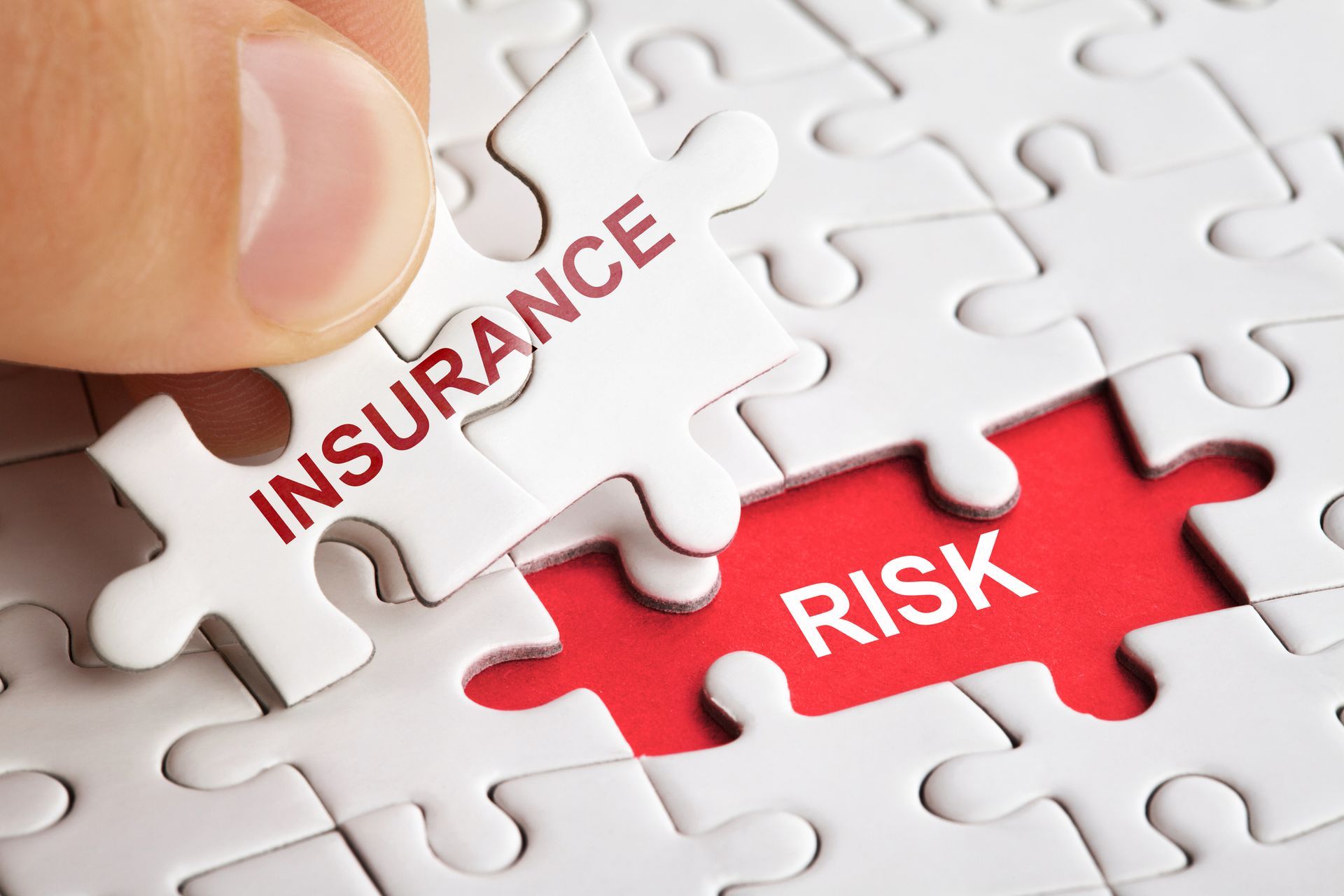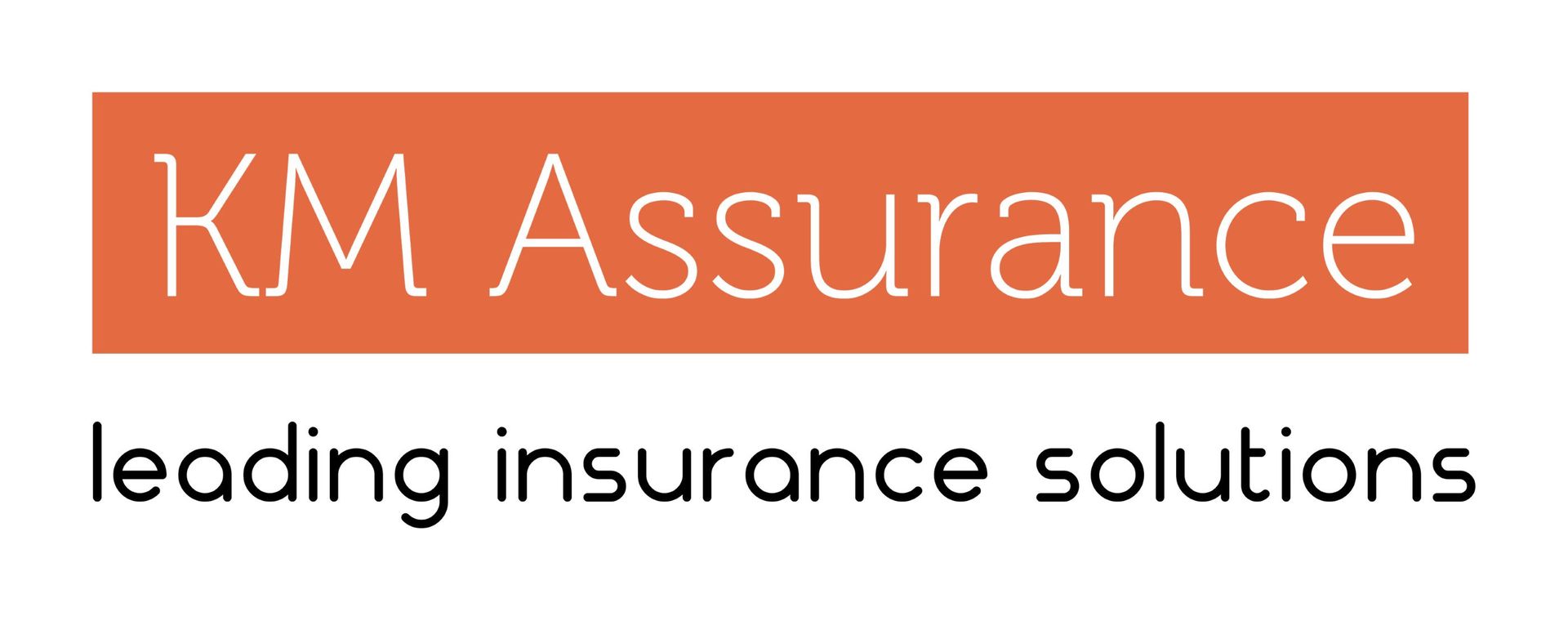General Liability Insurance
Kathryn McGarry • September 30, 2025
Protect Your Business from Unexpected Risks

Protect Your Business from Unexpected Risks
Insuring your business is crucial—especially when it comes to liability. Did you know that general and professional liability coverage is often affordable and can provide powerful financial protection?
Liability insurance acts as a financial safety net in case of an accident or mistake involving your business operations.
General Liability Insurance covers
a broad range of common risks that Florida businesses face. It’s one of the most essential types of commercial insurance and is often required for:
• Leasing property
• Working with clients
• Obtaining business licenses
If a customer, vendor, or visitor is injured on your business
premises or job site, general liability typically covers:
• Medical expenses
• Legal fees if you're sued
• Settlements or court judgments
Third-Party Property Damage.
• Your policy can also protect you if your business damages someone else’s property.
• Example: An employee accidentally breaks a client’s window while on the job.
Legal Protection:
Lawsuits, Attorney Fees & Court Costs. If your business is sued, general liability insurance helps cover:
• Attorney fees
• Court costs
• Judgments and settlements (within policy limits)
Personal & Advertising Injury Coverage. In the age of instant information sharing, you’re also protected against claims of:
• Libel or slander
• Copyright infringement (e.g., in your marketing)
• Wrongful eviction or invasion of privacy
Who Needs General Liability Insurance in Florida?
In Florida, most businesses—regardless of size or industry—should carry general liability insurance. Sometimes it's even legally required or contractually mandated.
Here’s who needs it and why:
1. Small Business Owners
• Even home-based businesses can be liable for injuries or property damage.
• Example: A client trips over a cord in your home office.
2. Contractors & Construction Businesses
• Often required by clients, general contractors, or municipalities.
• Typically a prerequisite for a Florida contractor's license.
• Example: A subcontractor damages a client’s property on-site.
3. Retail Businesses
• High foot traffic increases risk of customer injuries.
• Examples: Boutiques, grocery stores, cafés, gyms.
4. Service Providers
• Includes cleaners, photographers, consultants, etc.
• At risk for property damage or defamation-related claims.
5. Landlords & Tenants
• Many commercial leases require tenants to carry general liability.
• Protects landlords from liability due to tenant operations.
6. Freelancers & Independent Contractors
• Many clients demand proof of insurance before hiring.
• Shows professionalism and limits liability for hiring companies.
7. Event Planners & Organizers
• Venues often require proof of insurance.
• Covers injuries or property damage during events.
Bottom Line: Do You Need It?
YES!
You should carry general liability insurance in Florida if:
• You interact with clients or the public in person
• You work on other people’s property
• You lease or own commercial space
• You want to protect your business from costly lawsuits
Protect More Than Just Your Livelihood
It's not just your income at risk—it's your reputation. Don't wait until something happens. Get a quote today and bring peace of mind to your business, your investors, and your customers.
What General Liability Insurance Usually Does NOT
Cover
• Employee injuries (covered by workers’ comp)
• Damage to your own business property (covered by commercial property insurance)
• Professional mistakes (covered by errors & omissions/professional liability)
• Auto accidents involving business vehicles (covered by commercial auto insurance)
• Intentional wrongdoing or criminal acts

Pet Insurance Pets are part of the family, and protecting their health is just as important as protecting your own financial well-being. Pet insurance is a simple reimbursement-based plan that helps cover the cost of veterinary care when your pet needs it most. Policies can be customized to fit your needs, including your preferred coverage percentage, deductible, and optional add-ons such as wellness visits, vaccines, dental care, medications, and more. Most pet insurance plans exclude pre-existing conditions, which is why securing coverage while your pet is young and healthy is so important. Rates can also vary based on your pet’s age and care needs. For example, senior pets may benefit from plans that include more extensive exams and lab testing, like Zeus, who is enrolled in a plan designed specifically for older dogs. I offer Fetch Pet Insurance, which allows you the flexibility to choose any licensed veterinarian—no restrictive networks. The greatest benefit of pet insurance is financial security. Unexpected illnesses or accidents can result in veterinary bills costing thousands of dollars, but with smart planning, you can protect both your pet’s health and your pocketbook. Click here to shop pet insurance. Or call me anytime to discuss.

Reinsurance — the insurance that insurance companies buy to protect themselves against very large losses (especially from disasters like hurricanes, tornadoes, wildfires, etc.) — plays a significant role in shaping homeowners insurance rates across the U.S., and its impact varies by state depending on disaster risk, how much insurers rely on reinsurance, and local market conditions.

Understanding Florida Property Taxes — and How to Save Money Owning a home in Florida comes with plenty of perks — sunshine, no state income tax, and year-round outdoor living. But like every homeowner, you’ll also pay property taxes each year. Knowing how those taxes work (and where you can save) can help keep more money in your pocket.

Defensive Driving & Safe Habits Save Lives — and Money Having safe driving habits is one of the best ways to stay safe and save money. The number of claims, accidents, or violations you have directly affects your insurance score and premium rates. Below are simple, effective guidelines anyone can follow to become a safer, more defensive driver. What Is Defensive Driving? Defensive driving is a strategy focused on anticipating potential hazards, staying aware of your surroundings, and making safe, responsible decisions behind the wheel. It’s more than just obeying traffic laws — it’s about proactively avoiding accidents by: Anticipating other drivers’ mistakes Staying alert and focused Managing speed and space effectively #1 Maintain a Safe Following Distance This is number one for a reason — it’s easy to practice and has the greatest impact on your safety. Fact: Florida experiences roughly 250,000 rear-end collisions every year — that’s one every two minutes. The #1 factor in avoiding these is SPACE. Tips for maintaining safe space: Keep at least three car lengths of space in front and behind you, and at least one car width of space on either side when possible. At red lights, leave enough room to see the bottom of the tires of the car in front of you — this gives you room to maneuver if needed. Follow the 3-second rule: stay at least 3 seconds behind the car in front of you (and increase to 5–6 seconds in bad weather). Increase following distance at higher speeds or in poor road conditions. #2 Weather, Weather, Weather Florida is known for sudden and severe weather. When conditions change quickly, your reaction should too: Slow down! Turn on your headlights. Stay alert. Eliminate distractions. Extra Tip: In heavy rain, turning on your hazard lights can make you more visible and encourage other drivers to maintain a safe distance. #3 Home Maintenance of Your Vehicle A well-maintained vehicle is essential for defensive driving. This goes beyond oil changes and tune-ups — small habits make a big difference: Clean your windshield inside and out. o Interior window haze can reduce visibility by 20%–75%! Replace windshield wipers regularly. o If they smear or skip, it’s time for new ones. Use a rain-repellent product (like Rain-X). o Studies show it can improve driver response time by up to 1 second at 60 mph and increase visibility by 88 ft. Have a professional mechanic perform regular checks on: o Oil changes o Tire rotation & replacement o Brakes & batteries o Steering & suspension #4 Take a Defensive Driving Course If you’ve had frequent tickets or accidents, you may be required to take a safety course — but even if you’re not, anyone can benefit. These courses refresh your skills and may even lower your insurance premium. Insurance companies often review your driving record for: Number of claims — large or small Accidents — at-fault or not Violations — major or minor Tip: Drivers age 55 and older can take a mature driver course, which may qualify for additional insurance discounts. *Disclosure: The information provided is for general educational purposes only and may not apply to your specific policy, coverage, or insurance company. Always review your policy documents and consult directly with your insurance carrier or licensed agent for details about your unique situation. The information and recommendations provided are for general informational purposes only and should not be construed as professional mechanical advice. Always follow your vehicle manufacturer’s maintenance guidelines and consult a certified automotive technician for specific service needs. Safety improvements described are based on general studies and publicly available data and may not reflect exact results in every situation. You are responsible for ensuring all vehicle maintenance and repairs are performed safely and according to manufacturer and local regulations. *Insurance coverage applies only to approved losses as defined in your insurance policy. Exclusions, limitations, and deductibles may apply.

specialized segment of the insurance industry that covers risks that the standard (admitted) insurance market won’t insure. The Excess & Surplus (E&S) market provides customized or high-risk coverage that doesn’t fit the guidelines of traditional (“admitted”) insurance carriers regulated by the state. These are often non-admitted insurers, meaning: They don’t file rates or policy forms with the state insurance department. They aren’t covered by the state guaranty fund (which protects policyholders if an insurer becomes insolvent). However, they’re still regulated — they must be approved to operate as surplus lines carriers and must meet financial strength requirements. E&S insurance is usually accessed through a licensed surplus lines broker, who works with wholesale brokers or specialty carriers. Retail agents (like local agencies) refer clients to these brokers when a risk is declined* in the admitted market. How do Floridians benefit from E&S Markets? It helps provide coverage for businesses or individuals that: Have unique or complex risks (e.g., amusement parks, cannabis operations, coastal properties) Have poor loss histories (many prior claims) Are in high-risk locations (like hurricane zones in Florida or wildfire areas in California) Need custom coverage that standard insurers don’t offer

Professional Liability Insurance (also called Errors & Omissions Insurance) is essential for businesses and individuals who create contracts or service level agreements (SLAs). This coverage protects against claims of breach of contract, mistakes, negligence, or failure to deliver services as promised. If a client files a lawsuit, professional liability insurance helps safeguard your company from financial losses by covering both potential settlements and the legal defense costs involved. In short, it provides peace of mind that one dispute won’t put your business at serious risk. Why it’s needed: 1. Protection from lawsuits – Even if you haven’t made a mistake, clients can still sue for perceived errors or unmet expectations. Legal defense costs alone can be very expensive. 2. Covers professional mistakes – If a professional error causes a client financial loss, this insurance helps cover settlements, judgments, and legal fees. 3. Contract requirements – Many clients or companies require contractors, consultants, and service providers to carry professional liability insurance before hiring them. 4. Peace of mind – It reduces financial risk, letting professionals focus on their work without fear of one lawsuit ruining their business. Who needs it: Small business owners offering professional services Marketing, media, and creative professionals (e.g., copyright issues, advertising claims) IT professionals and software developers (if technology solutions fail or cause losses) Lawyers and legal professionals Accountants, financial advisors, and consultants Architects and engineers (in case designs cause financial or safety issues) Anyone who provides professional advice, expertise, or services that could cause a client financial harm if done incorrectly should strongly consider professional liability insurance. Common exclusions (things usually not covered): Intentional wrongdoing or fraud – If a professional deliberately deceives or harms a client, insurance won’t pay. Bodily injury or property damage – Those are typically covered under general liability insurance, not professional liability. Employee injuries – Covered under workers’ compensation, not professional liability. False advertising or defamation (outside professional services) – Sometimes excluded unless tied directly to professional work. Illegal activities – Any claims arising from breaking the law are excluded. General business risks – Things like data loss from a cyberattack or stolen equipment are covered under cyber liability or business property insurance, not professional liability. Contract disputes outside negligence – If the disagreement is just about money owed or a broken contract without negligence, the policy usually won’t help. Prior known claims – If you were already aware of a mistake or issue before getting the policy, it’s excluded. In short: Professional liability insurance is narrowly focused on mistakes, negligence, or failure to deliver services properly — it won’t cover physical injuries, intentional acts, or unrelated business risks. Don’t wait to get covered properly. Professional liability insurance is often very affordable, as low as $20/month. Get a quote today by scheduling on my website.

Cyber liability insurance is a type of business insurance that protects organizations against financial losses caused by cyberattacks, data breaches, and technology-related risks. What it covers: Data breaches – Costs of notifying affected customers, offering credit monitoring, and managing public relations. Cybercrime – Losses from ransomware, phishing, or other types of cyber extortion. Business interruption – Lost income if your systems go down due to a cyberattack. Legal fees and fines – Defense costs if you’re sued for failing to protect sensitive data. Forensic investigation – Costs of figuring out how the breach happened and fixing vulnerabilities. Who needs it: Any business that stores sensitive information (like customer names, addresses, Social Security numbers, or financial data). Companies that process payments online (e-commerce stores, subscription services, SaaS providers). Healthcare organizations (handling protected health information). Financial institutions, accountants, and law firms (trusted with highly sensitive client records). Small and medium-sized businesses – They’re often prime targets because they may not have large IT security budgets Many small business owners think cyberattacks only happen to big corporations, but in reality, small businesses are often the primary targets — mainly because attackers assume they have weaker security and fewer resources to respond. Key Reasons small business should carry cyber liability: 1. Small businesses are prime targets Studies show nearly half of cyberattacks are aimed at small businesses. Hackers know smaller companies often lack advanced cybersecurity tools. 2. High cost of a breach Even a single attack (like ransomware or phishing) can cost tens of thousands of dollars. Many small businesses can’t absorb these costs without insurance. 3. Covers legal and regulatory requirements If customer data is exposed, businesses may be legally required to notify customers, offer credit monitoring, and comply with privacy laws. Cyber insurance helps cover those expenses. 4. Business continuity protection A cyberattack can shut down operations for days or weeks. Cyber insurance helps cover lost income and costs to get back online. 5. Reputation protection Small businesses often rely on trust and word-of-mouth. Cyber insurance can help with public relations and customer communication after a breach. 6. Access to experts Policies often come with access to forensic teams, legal counsel, and crisis managers — resources most small businesses can’t afford on their own. If your business relies on technology or handles sensitive data, cyber insurance is a smart safeguard against the growing risk of cybercrime. While cyber insurance can be a lifesaver after a data breach or cyberattack, there are important gaps in coverage. What Cyber Insurance Typically Does Not Cover: 1. Physical property damage – If a cyberattack causes equipment to break (e.g., servers fry), that’s usually covered under property insurance, not cyber. 2. Bodily injury – Harm to people (e.g., hospital equipment hacked leading to injury) isn’t covered — that falls under general liability or malpractice. 3. Insider threats or fraud – If an employee steals data or commits fraud, cyber insurance may not cover it unless you also carry crime insurance. 4. Poor security practices known in advance – If you ignored required software updates, failed to use basic protections (like firewalls), or knew of vulnerabilities and didn’t fix them, the policy won’t pay. 5. Reputation damage alone – PR support may be covered, but the long-term loss of brand value or customers usually isn’t. 6. Future lost profits – Policies typically cover immediate business interruption, not revenue drops months later. 7. Pre-existing incidents – Breaches or attacks that happened before the policy start date are excluded. 8. War or terrorism-related cyberattacks – Many insurers exclude state-sponsored or “act of war” cyber events.



